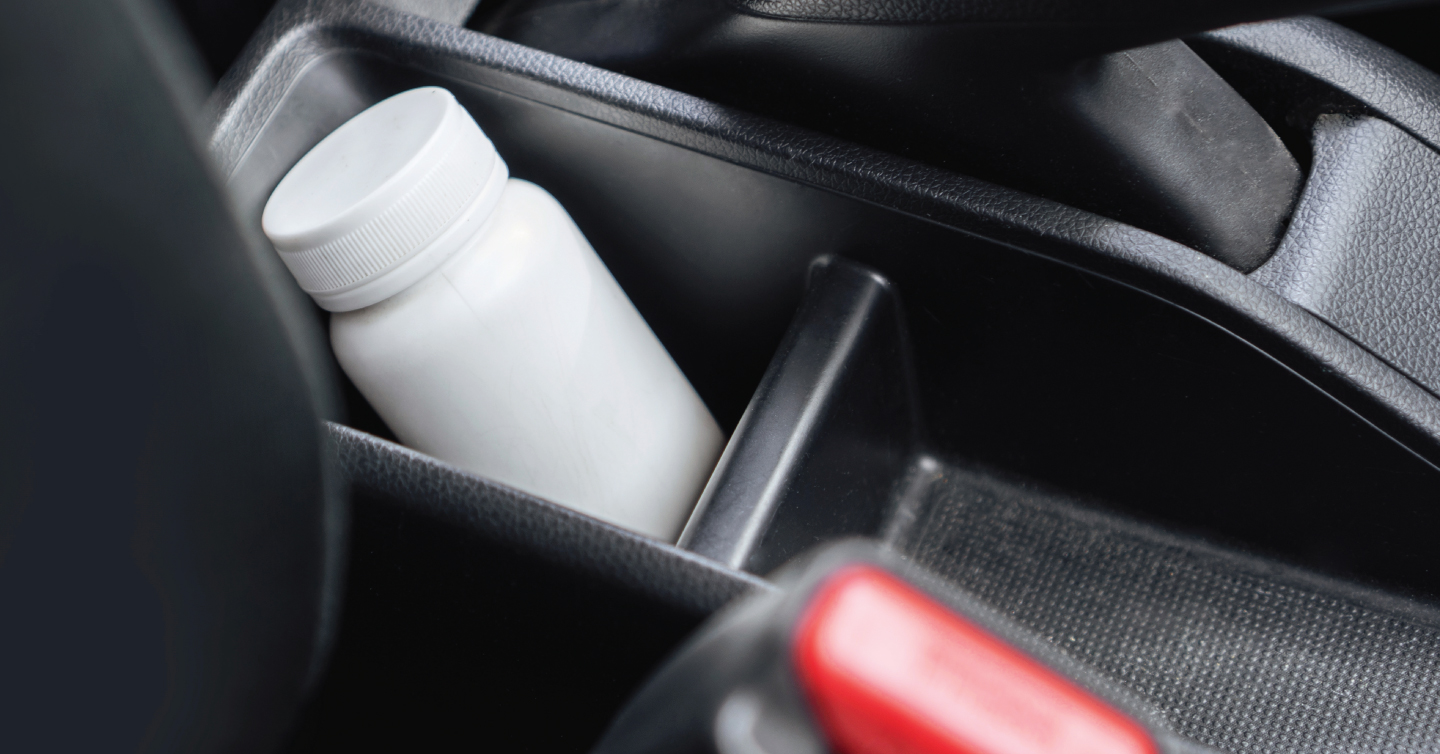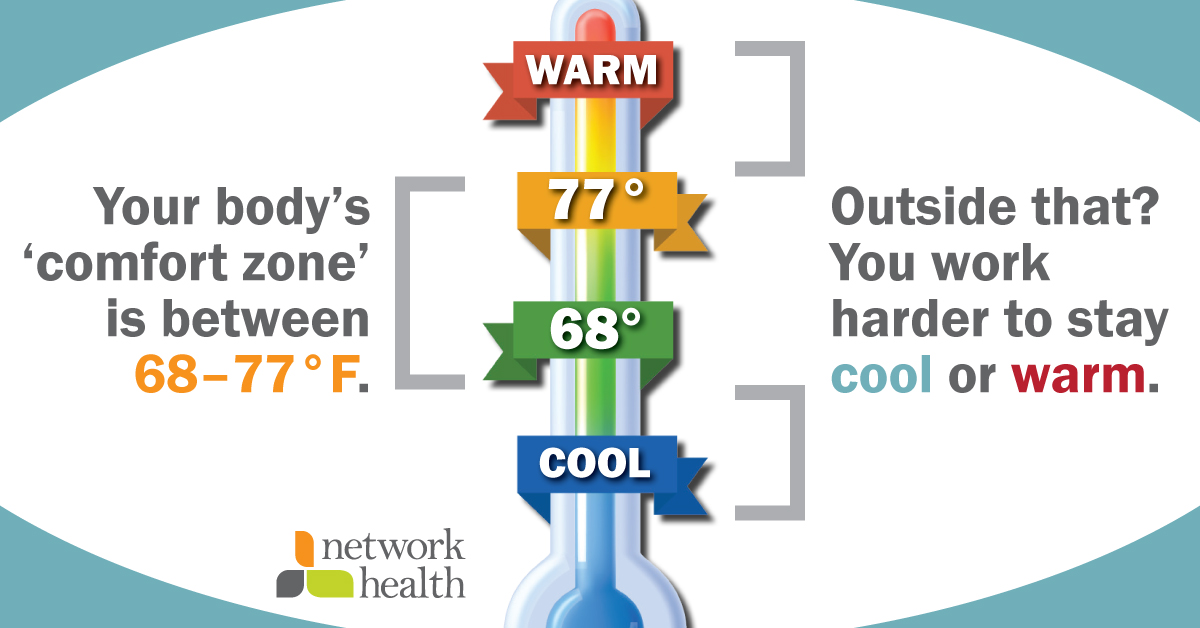Why You Should Not Store Meds in a Hot Car—and Other Travel Tips for a Safe, Healthy Trip

By Allyson Hencke, pharmacy intern at Network Health
7/25/2025
Summer in Wisconsin means road trips, weekends at the cabin and plenty of time outdoors. While we often focus on packing our coolers with food and drinks, it is just as important to pack smart for our health. After all, even though we are on vacation, good health habits are not.
Medications often get overlooked in travel plans, but they need attention, especially in the summer heat. If medications are not properly stored during travel, they can be exposed to unplanned heat, which can put our health at risk. Today, we will look at some tips on how to plan ahead to safely travel with your medications.
The Dangers of Leaving Medications in a Hot Car
When medications are exposed to high temperatures, they may damage medication delivery devices, break down medications or cause the medication to become less effective. These temperatures may make our medications overall unsafe to use, which could be dangerous for our health.
A few examples of heat-sensitive medications include the following.
- Insulin
- EpiPens
- Antibiotics
- Inhalers
- Diuretics
- Nitroglycerin
Even on a mild 70°F day, the inside of a parked car can reach 130°F or higher in the sun. This kind of heat can jeopardize our medications. If medications are exposed to heat, carefully check for any changes in color, texture or odor. If you notice any of these changes, do not use the medication, because it may have been compromised. You can contact your Network Health pharmacist or a local pharmacist to ask about your medications and whether you should continue using them.
What to do instead: Never leave medications in a parked car, especially in the glove compartment, as temperatures can reach even higher in there. Instead, keep medications in a cooler or insulated bag. However, avoid placing your medications directly on ice as that could also damage them. If you leave the car, take your medications with you in a small, climate-controlled bag.
![]() If you like this article, follow us on Facebook for more like it.
If you like this article, follow us on Facebook for more like it.
Travel Tips for Bringing Medications on the Road
These few things can help prepare and make traveling a smooth and effortless process.
- Bring a printed medication list: Having this list is so important in case of emergencies. On your list, include the name of your medications, dosage/strength and the instructions for each one.
- Pack medications in your carry-on: Never put your important medications in your checked luggage. Airlines can lose bags, especially during the busy summer travel season.
- Use a pill organizer and medication alarm: When traveling, this may cause your routine to be thrown off. A pill organizer can help keep you on schedule and prevent you from missing any doses. Jet lag or different time zones can also throw off your schedule. Setting a medication alarm can help keep you on track with your doses, especially for those that are time sensitive. A mobile app like Medisafe is a great option to use for an alarm.
- Check prescription refill dates BEFORE your trip: Nothing is worse than realizing you are out of your medication halfway through your trip. Look at your supply and refill your medications a week BEFORE leaving. If you are too early for a refill, ask your pharmacist to call for a vacation override. This can ensure you will have enough medication with extra for any unexpected travel delays.
- Know your pharmacy network: If you have a plan with Network Health, you can use the “Find a Pharmacy” tool when traveling to locate nearby pharmacies that are in-network. You can also call the number on the back of your Network Health plan card, and the customer service team will gladly help you to find an in-network pharmacy while traveling.
General Healthy Travel Tips
- Hydrate smart: Always keep a water bottle handy when traveling, especially if on diuretics or blood pressure medications. These types of medications can cause you to become dehydrated more quickly.
- Protect against sun and heat: Some medications, like certain antibiotics or acne medications, can make you burn more easily in the sun. If you are on these medications, it is important to cover up and use sunscreen if you are going to be outside for extended periods. More information can be found here: Medications That Can Cause Sun Sensitivity or Sunburn.
- Travel Coverage: Some Network Health plans offer travel coverage when traveling outside of Wisconsin. Call the number on the back of your Network Health plan card, and the customer service team can help answer any questions you have regarding your travel.
- Pack a mini first aid or travel health kit: It is always important to keep the essentials on hand while traveling. These may include bandages, pain relievers, allergy meds or anything over the counter that works best for you.
Bonus Tip: Use shade, clothing or other means to remain in the ideal ambient temperature zone for the human body, keeping your body from working too hard to stay cool or warm.
Quick Tips for Special Situations
- Traveling with children or older adults? They are more sensitive to heat and dehydration, especially if on medications. It is important to keep them hydrated and in a cool, shaded area if outside for longer periods.
- Flying internationally with prescriptions: Keep your medications in the original bottles with your name on them. Also, consider bringing a doctor’s note for injectable or controlled substances. Lastly, always check the rules for each country before you go.
It is amazing how a few small steps, like not leaving your medications in the car, can make a huge difference on your trip. Using these tips when planning your next vacation can make managing and prioritizing your health easy. This allows for more fun, excitement and relaxation during your trip.
Talk to your personal doctor or pharmacist about any further questions you might have regarding travel or your medications. If you have a plan with Network Health, you can also speak directly with a Network Health pharmacist by calling 888-665-1246 (TTY 800-947-3529) Monday-Friday, 8 a.m. to 5 p.m. or by emailing pharmacist@networkhealth.com.



